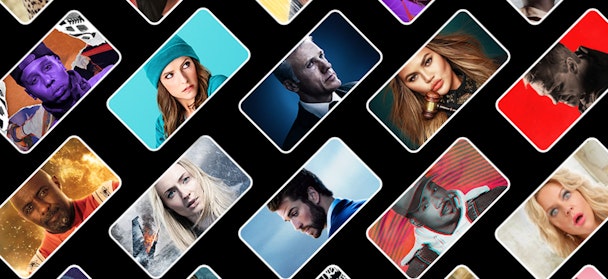Why Quibi did in fact fail from ‘lack of trying’
Tom Jarvis, founder of the Wilderness Agency takes a look at why shortform video platform Quibi couldn’t even see out the year.

Why Quibi did in fact fail from ‘lack of trying’
Quibi, the Hollywood suits’ answer to online video, is shutting down after just six months. In many ways, the news surprised no one. The failure of a short form content app aimed at commuters, launching just as a global pandemic ends commuting… well, of course.
But that’s not why it failed. Even as commuting has vastly reduced, we’re watching more short-form content than ever.
In a public letter sent out on Wednesday Katzenberg and Quibi chief executie officer Meg Whitman wrote that they were winding down the company, selling-off its content and assets, stating that “our failure was not for lack of trying”. This is despite seemingly having a decent backing from advertising brands.
Quibi tried, sure. But it tried the wrong things, the old things, the things that might have worked in the past. There was a huge media circus. Quibi sold Betamax tapes as hard as it could.
The overarching mistake was to think it was in charge of how people would receive its ‘premium content’, delivered from on high. Feeding into this, there were also a series of very real problems with the way Quibi worked out in the world.
The first was relative value. Watching a cat video on YouTube, or the Ocean Spray video on TikTok is as valuable and meaningful to many people as a high-budget narrative short-form from a major Hollywood director. Quibi only had the latter.
The high budget stuff can be good too – but it’s an expensive gamble. And you can’t offer it up without the ecosystem of community, of discovery around it.
Which leads us on to the second glaring omission from Quibi: the ability to share videos to other platforms, hampering any chance for content to spread virally. There was a huge lack of social functionality within the app. Some of this might be related to TV rights – but there was no attempt to find a way around it. How many cool clips from Quibi have you seen since March in your social feeds? None, I'd bet.
And then, thirdly – there’s an algorithm issue. Not only could I not comment or discuss content with other users but the algorithm didn’t seem to do a good job of learning what I might like or want to watch. In an era of algorithmically driven viewing, Quibi had no chance because it lacked ‘signal liquidity’.
Where Quibi can notice you watching six minutes of Flipped, a show about a house-flipping couple caught up with drug cartels (I mean really is this ‘premium content’?), the AI will recommend another show for you to watch, based on one or two signals to do with the cast or genre of the show.
In the same time frame, TikTok has dozens of signals from the roulette wheel of short-form content, and is learning more every second about what I like and what makes me stop watching.
What Quibi seemed to ultimately miss is that there are no greater arbiters of taste than young consumers themselves – and you can’t dictate the terms of consumption. These people have grown up being bombarded with content vying for their attention and they have become expert curators of their own culture.
Even the great Jeffrey Katzenberg cannot ‘make’ a hit online. Things hit a nerve, suit a moment, and crucially become part of a discovery experience with others, Quibi was never at the table.
Millions of people watched 20 seconds of a guy on a skateboard drinking Ocean Spray to Dreams by Fleetwood Mac. Why? Not because it’s premium content – though it is wonderful – or because it has some named actor who used to be in that show they liked five years ago. But because it captures a feeling, a mood.
In the craziness of the pandemic, with governments faltering and job insecurity on the rise, this is 20 seconds of unadulterated freedom and joy. And then people can share it, it can be re-discovered, recommended personally, shared, picked up by an algorithm and reach even more people. Quibi stood outside of this society and the networks it needed to be a part of in order to survive.
From the outset, Quibi seemed to believe it was in competition with Netflix and Disney+ when in reality it was also competing with TikTok, Snapchat, Instagram, and YouTube. Plus gaming. Plus idly browsing Instagram or Twitter. Plus reading the Metro, or talking to a friend.
Its competition was everywhere, and it tried to sit apart from how we consume entertainment today and force people to consume the way they wanted. I don’t think anyone will make the same, expensive mistake again.
Tom Jarvis is founder of the Wilderness Agency.

